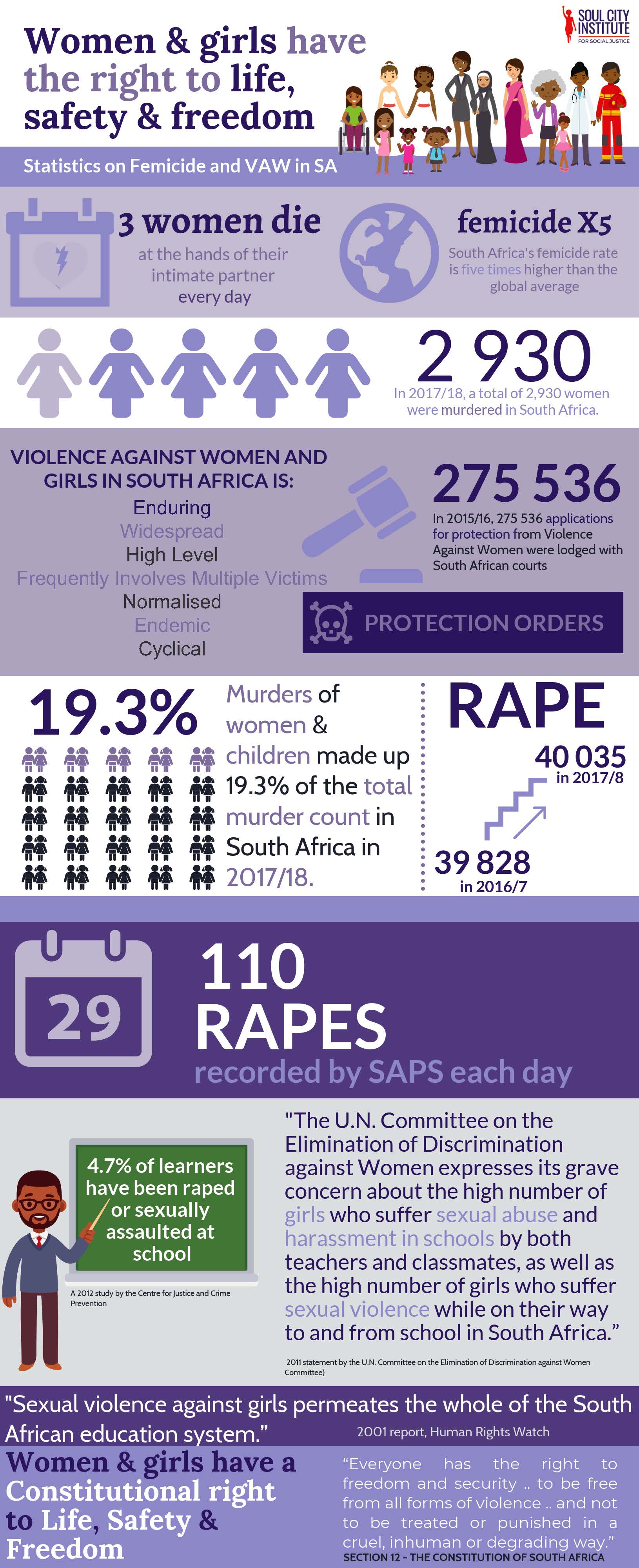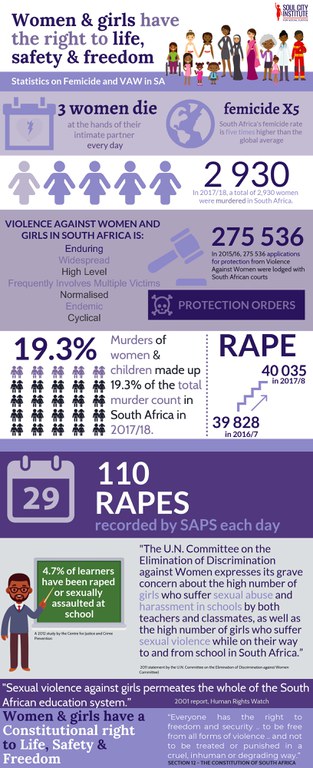The Soul City Institute calls on President Ramaphosa to act on ANC MP, Mr Boy Mamabolo
Violence against women in South Africa is enduring, widespread, normalised, cyclical, endemic and frequently involves multiple victims. Three women die at the hands of their intimate partner every day. 2,930 women were murdered in South Africa in 2017/18, and the murder of women and children made up 19.3% of the total murder count in that same year. South Africa’s rate of femicide is five times the global average. In 2015/16 alone, some 275 536 applications for protection from Violence Against Women were lodged with South African courts.
In view of this reality, it is unacceptable that men in Parliament consider it appropriate to use violence against women as an issue to score political points. Combatting VAW should be a priority across party lines. The deliberations in Parliament demonstrate a total disregard for the gravity of the situation and is evidence of toxic masculinity in the highest reaches of the Legislative and the Executive branches of government.
SA is preparing for 64th session of the Commission on the Status of Women at the United Nations in New York in March 2020. The main focus of the session will be on the review and appraisal of the implementation of the Beijing Declaration and Platform for Action and where country will be held to account for its delivery on its commitments to international instruments on women’s rights, its constitutional promises, and the government’s implementation of legislation, policy and delivery on these commitments.
South Africa has a good story to tell with respect to compliance on formal equality, but a shocking tale to tell on the attainment of substantive equality for women and girls.
The allegations against Mr Mamabolo, deposed to by his accuser, and reported in the weekend papers, illustrate the stark divide between women’s formal and substantive equality. And highlights the disconnect between legislation that seeks to fulfil its constitutional protections and the inefficiencies of the Justice System intended to implement these laws.
The attrition-rate of sexual offence cases inside the justice system makes a mockery of the progressive scope of legislation aimed at protecting women and girls, such as the Sexual Offences Act and the Domestic Violence Act. The success of SA’s legislation is highly dependent on the criminal justice process - from the time a rape is reported up to the point of trial, conviction and sentencing in a court. Sexual offences cases in South Africa have a high attrition rate, with survivors experiencing secondary victimisation throughout the criminal justice process and enables perpetrators to act with impunity.
A 2017 RAPSSA Report which examined 3 952 rape cases from across South Africa to assess their progress through the justice system, found that:
- Arrests were made in just 57% of these cases.
- Only 65% of these cases were referred for prosecution.
- Only 34% were accepted by prosecutors and enrolled for trial.
- Only 18.5% of these cases went to trial.
- Only 8.6% of the trials were finalized with a verdict guilty of a sexual offence.
Only 340 of the 3 952 sexual offences cases made it through the justice system and resulted in a guilty verdict.
SCI calls on all members of Parliament who rise to speak to the issue of VAW, to please consider the thousands of women and girls who have lost their lives and those living with the enduring trauma of sexual violence. And if they are unable to walk their talk and to give due regard to women’s Right to Dignity, Equality and Freedom, to please sit down.
President Ramaphosa’s censure of Mr Mamabolo and his apology to Mrs Mantoa Malema were the right thing to do. As is holding Mr Mamabolo - a Member of Parliament responsible for upholding the values of the Constitution - to account in light of the allegations outlined against him. The SCI calls on President Ramaphosa to act.
Toxic masculinity and impunity are driving the scourge of violence against women and girls – apologies matter, but they are not enough. Action and accountability are required.
Issued by the Soul City Institute for Social Justice
For more information: Gail Smith, Spokesperson Soul City Institute for Social Justice. Tel: 060 988 3792, email: gail@soulcity.org.za
Download the media statement here.


